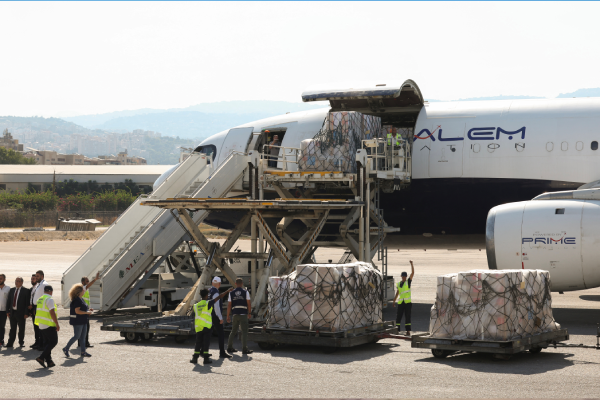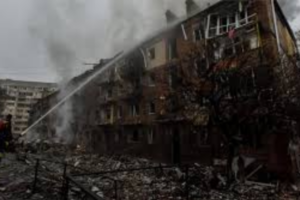Lebanon has received emergency medical supplies to ready its hospitals for potential war injuries, while Beirut airport was packed with people attempting to flee the nation amid fears of a full-fledged warfare.

According to reports, tensions in the region have risen in the previous week as a result of the execution of the head of Palestinian terrorist group Hamas in Tehran and an Israeli assault on Beirut’s suburbs that killed a prominent commander in Lebanon’s armed group Hezbollah.
Meanwhile, Hezbollah and Iran have pledged to strike against Israel over the killings, raising fears that the various fronts fighting in parallel to the Gaza War would expand into a full-fledged regional war.
A decade-long economic crisis has left hospitals in southern Lebanon, the epicenter of most of the tit-for-tat exchanges between Hezbollah and the Israeli military, exhausted and unable to handle the influx of injured during the past ten months.
Read Also
At least 1,000 trauma kits, necessary to treat potential conflict casualties, were among the 32 tons of medical supplies that the World Health Organization brought to Lebanon’s health ministry.
In the airport’s departure hall, families of Lebanese origin who had come to their homeland for the summer lined up to check in to their departing flights, sad to be leaving earlier than expected.
Countries including France, Britain, Italy, Turkey, and others have urged their nationals to leave Lebanon as long as commercial flights are still available.
The US has urged its people who wish to leave Lebanon to book any ticket available, while the UN has requested its staff’s families to leave Lebanon, and the Swedish embassy has temporarily shifted its staff to Cyprus.
However, others in Lebanon appeared more relaxed. Children splashed in the ocean along the sandy beach of Tyre, Lebanon’s port city, about 20 kilometers (12 miles) from the Israeli border, as plumes of black smoke from Israeli bombardment further south curled up from the hills behind them.





